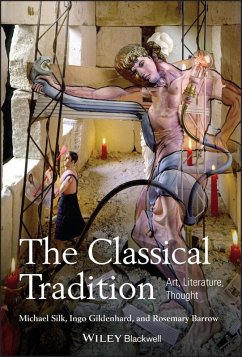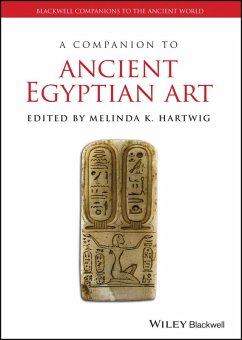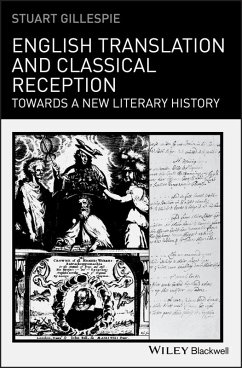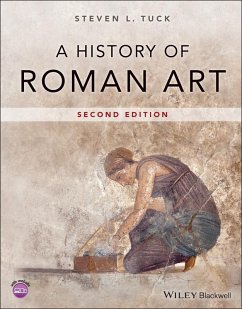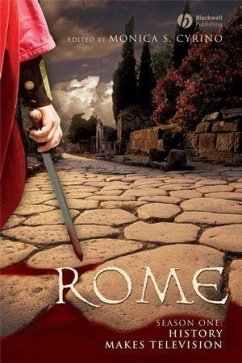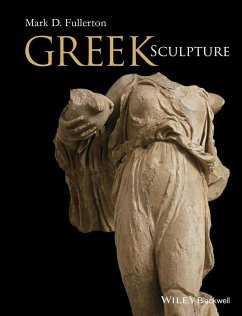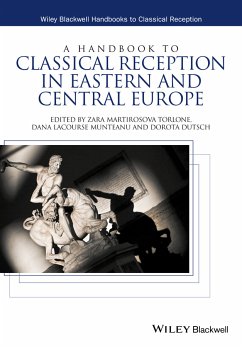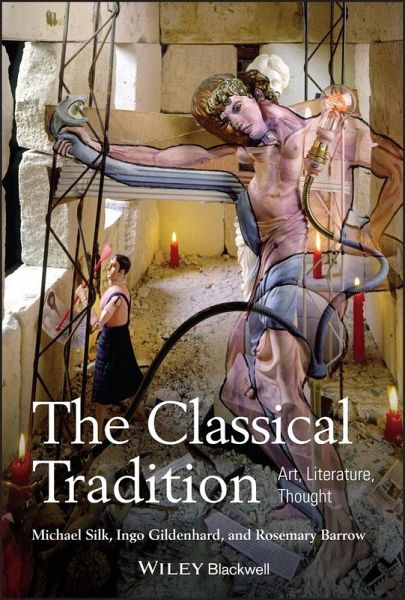
The Classical Tradition (eBook, PDF)
Art, Literature, Thought
Versandkostenfrei!
Sofort per Download lieferbar
105,99 €
inkl. MwSt.
Weitere Ausgaben:

PAYBACK Punkte
0 °P sammeln!
The classical tradition-the legacy of Ancient Greece and Rome-is a large, diverse and important field that continues to shape human endeavour and engender wide public interest. The Classical Tradition: Art, Literature, Thought presents an original, coherent and wide-ranging guide to the afterlife of Greco-Roman antiquity in later Western cultures and a ground-breaking reinterpretation of large aspects of Western culture as a whole - English-speaking, French, German and Italian - from a classical perspective. Encompassing almost two millennia of developments in art, literature, and thought, the...
The classical tradition-the legacy of Ancient Greece and Rome-is a large, diverse and important field that continues to shape human endeavour and engender wide public interest. The Classical Tradition: Art, Literature, Thought presents an original, coherent and wide-ranging guide to the afterlife of Greco-Roman antiquity in later Western cultures and a ground-breaking reinterpretation of large aspects of Western culture as a whole - English-speaking, French, German and Italian - from a classical perspective. Encompassing almost two millennia of developments in art, literature, and thought, the authors provide an overview of the field, a concise point of reference, and a critical review of selected examples, from Titian to T. S. Eliot, from the hero to concepts of government. They engage in current theoretical debate on various fronts, from hermeneutics to gender.
Themes explored include the Western languages and their continuing engagement with Latin and Greek; the role of translation; the intricate relationship of pagan and Christian; the ideological implications of the classical tradition; the interplay between the classical tradition and the histories of scholarship and education; the relation between high and low culture; and the myriad complex relationships-comparative, contrastive, and interactive-between art, literature, and thought themselves. Authoritative and accessible, The Classical Tradition: Art, Literature, Thought offers new insights into the powerful legacy of the ancient world from the Middle Ages and the Renaissance to the present day.
Themes explored include the Western languages and their continuing engagement with Latin and Greek; the role of translation; the intricate relationship of pagan and Christian; the ideological implications of the classical tradition; the interplay between the classical tradition and the histories of scholarship and education; the relation between high and low culture; and the myriad complex relationships-comparative, contrastive, and interactive-between art, literature, and thought themselves. Authoritative and accessible, The Classical Tradition: Art, Literature, Thought offers new insights into the powerful legacy of the ancient world from the Middle Ages and the Renaissance to the present day.
Dieser Download kann aus rechtlichen Gründen nur mit Rechnungsadresse in D ausgeliefert werden.




